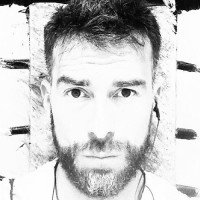Christopher Cabib is a distinguished Neurophysiologist at Hospital de Mataro, where he plays a pivotal role in advancing the field of clinical neurophysiology. His expertise encompasses a broad spectrum of neurological conditions, with a particular focus on neuromuscular disorders and neurogenic dysphagia. In his current...
Christopher Cabib is a distinguished Neurophysiologist at Hospital de Mataro, where he plays a pivotal role in advancing the field of clinical neurophysiology. His expertise encompasses a broad spectrum of neurological conditions, with a particular focus on neuromuscular disorders and neurogenic dysphagia. In his current role, Christopher is instrumental in conducting comprehensive neurologic examinations and employing advanced neurophysiological diagnostics, including electromyography (EMG) and evoked potentials. These diagnostic tools are essential for accurately assessing neuromuscular patients and those suffering from complex conditions such as neurogenic dysphagia and fecal incontinence.
In addition to his diagnostic acumen, Christopher is at the forefront of therapeutic innovations, utilizing non-invasive brain stimulation (NIBS) techniques, such as repetitive transcranial magnetic stimulation (rTMS) and transcranial direct current stimulation (tDCS). These cutting-edge approaches are integral to the rehabilitation of patients recovering from strokes, particularly in addressing oropharyngeal dysphagia, a common yet challenging complication that significantly impacts quality of life. His commitment to clinical and translational research further enhances his contributions, as he actively investigates the underlying mechanisms of neuromuscular disorders and seeks to translate findings into effective therapeutic strategies.
Christopher's multifaceted skill set, which includes a deep understanding of neurology, neurophysiology, and clinical research, positions him as a key player in the evolving landscape of neuroscience. His work not only improves patient outcomes but also contributes to the broader understanding of neurophysiological disorders, making him a valuable asset to both his institution and the field at large.







